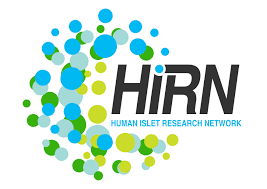Leaving Community
Are you sure you want to leave this community? Leaving the community will revoke any permissions you have been granted in this community.
[Recorded Webinar and Slides Are Available Now!] Join dkNET Webinar "The Microphysiology Systems Database (MPS-Db): A Platform For Aggregating, Analyzing, Sharing And Computationally Modeling In Vitro Data"
*Watch recorded webinar here: https://youtu.be/fsWUmBqjB4I
*Webinar slides: https://www.slideshare.net/dkNET/dknet-webinar-the-microphysiology-systems-database-mpsdb-a-platform-for-aggregating-analyzing-sharing-and-computationally-modeling-in-vitro-data-11122021
Join dkNET Webinar on Friday, Nov. 12, 2021, 11 am - 12 pm PST
Abstract
The Microphysiology Systems Database Center (MPS-DbC) developed and implemented the Microphysiology Systems Database (MPS-Db, https://mps.csb.pitt.edu/) for the management, analysis, sharing, integration of preclinical and clinical information, and computational modeling of data in one platform, enhancing the in vitro model value and user workflow. The MPS-Db supports data from a wide range of in vitro models including static and microfluidic 2D and 3D microplates, and microfluidic MPS for single and multiple organ models. Aggregation of metadata, experimental data, and references provides for robust and relevant interpretation of the results, and having a central repository facilitates data sharing among user-specified collaborators and groups. Ready access to experimental data and metadata from any in vitro platform, along with reference data in a mineable format, provides a convenient platform for statistical analysis of performance, and building computational models to predict PK, identify compound mechanisms of actions, and infer pathways of disease progression. The MPS-DbC assists users in capturing and managing MPS data, and the MPS-Db is the central repository for the Tissue Chip Testing Centers, as well as the NCATS Tissue Chips programs. We continue to build the research and commercial value of the MPS-Db by: 1) supporting MPS users to build content; 2) implementing on-line preclinical/clinical concordance analysis capabilities; 3) enhancing the suite of data mining and computational modeling tools; and 4) augmenting methods for ensuring data quality and the secure, controlled release of data to user-specified groups.
The top 3 key questions that Microphysiology Systems Database (MPS-Db) can answer:
1. What models are available, what are their characteristics, how reproducible are they, and how can they be used?
2. How does an organ model A compare with organ model B? For example, where model A and model B are constructed in different laboratories, on different days, or with difference cells, such as iPSCs vs. primary cells.
3. Which readouts from an organ model are predictive of a specific clinical outcome and how reliable is the prediction?
Presenter: Bert Gough, PhD, Association Professor of Computational and Systems Biology, Group Leader Informatics, University of Pittsburgh Drug Discovery Institute
Dial-in Information:
Date/Time: Friday, November 12, 2021, 11 am - 12 pm PST
https://uchealth.zoom.us/meeting/register/tZEtcO2qrzIuHNEqe6qPXzswJK4--tUlWEGa
Upcoming webinars schedule: https://dknet.org/about/webinar





